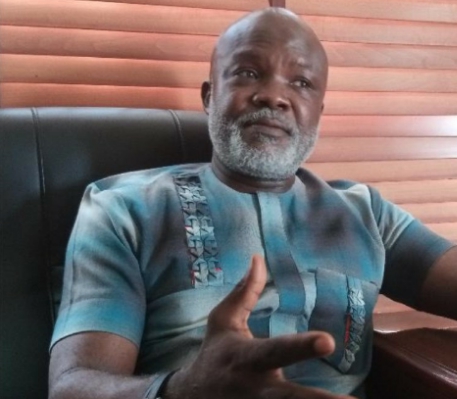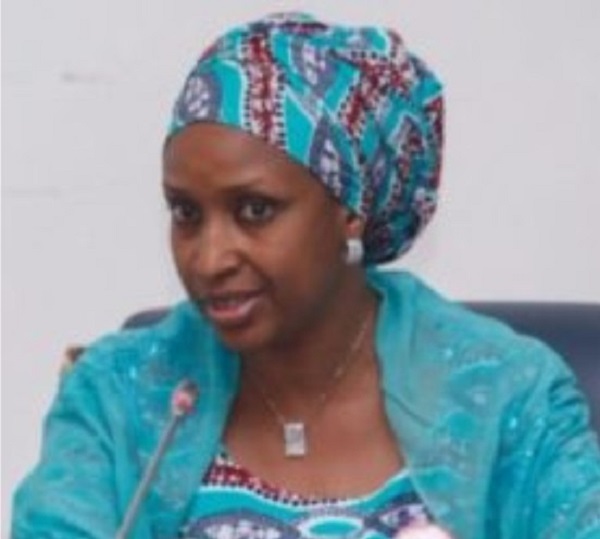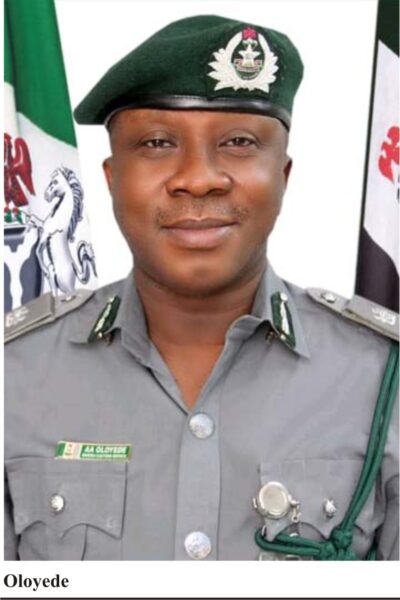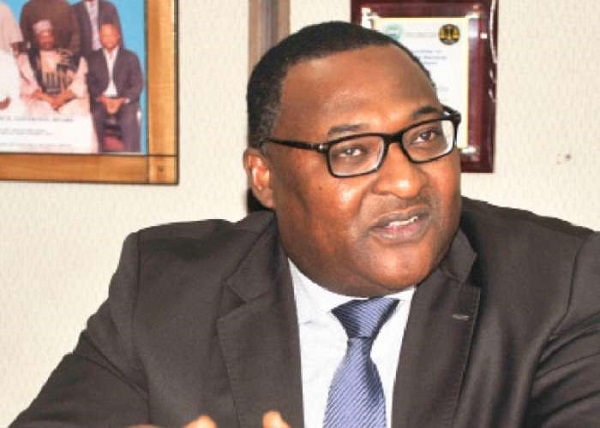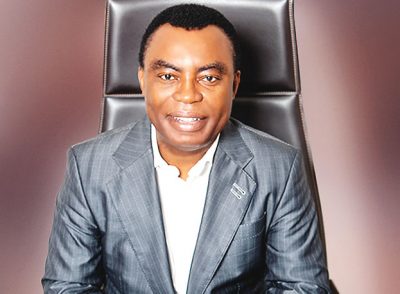Nigerian Banks Need To Be Trained For Export- Udofia, CEO, Institute of Export
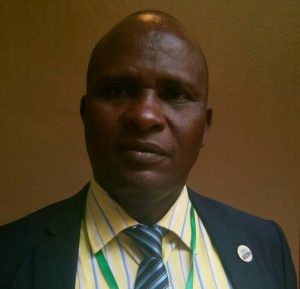
Mr. Ofon Udofia is the Executive Secretary/Chief Executive Officer (CEO) of Institute of Export Operations and Management. In this encounter with MMS Plus, he talks about how the institute has applied E-Commerce in export trade and financing in Africa. The Institute is embarking on aggressive export awareness campaign even in tertiary institutions, with the inclusion into the school curriculum. How will you be part of this? Find out.
You are talking about export opportunities, for which you’ve been able to develop a database for, so how does that work?
Well, the Institute of Export Operations and Management, had an encounter with I TC of the United Nations and we also did a Train the Trainer (TOT) in Nigeria last year in May on market access, product map and traceability. So after that, we’ve been able to come up with a platform yet to be lunched but if people are interested in getting into market now, we can give them the market; but the platform will soon be launched where people can access market globally and the platform is in two folds , we have the agric Online Store , that one is only agric businesses; so if you have any product in agric business, you just upload it there and the entire world looks at you and we’re looking at a scenario that it is only people from Africa that can sell on that platform but the entire world can buy from them. Thus, we’re going to internationalize Africa by using that platform. The second one is the BIZCOM which is for general goods. We are actually going to schools to let students know about export and they can start selling things to their fellow students in other countries. For instance, in our population, if you have about one million students doing an export of about $500 in a month, you can trust that it will have an effect on the pressure that the naira is going through. So it is our earnest prayer that people should key into export, because as we know, export is one business that you can do without money; because as you are looking for money to trade with someone in overseas, the person will do same to you; but they need to be trained, to know about export. Export is not like buying markets in Alaba market, it’s more than that and there are regulations with other standards that one need to meet. So we’re working alongside with other organizations and also we want to bring it up to the government that export education should be introduced into our curriculum, at least, at the university level under entrepreneur so that when the students leaves, they will not become a job seeker but an employer.
That’s a nice one! As we know, the Nigerian export promotion council recently came up with an idea, I think they are partnering with fidelity bank or so with the Lagos business school, so how do one assess that project?
Well, like I said in the hall, there’s what they call, Trade and Investment Support Institutions (TISI), Nigeria Export Promotion Council (NEPC) has been given so much work with less financing by the government, so we need to create other trade and investment support institutions (TISI) nearly in all the six geopolitical zones in the country so that we work in collaboration with NEPC. What they are doing is good, but it’s in Lagos Business School, my question is, how many people from all over the country can go to Lagos Business School to go and access that? It’s a good thing that they’ve done with their minimum resources within and, no doubt, they are doing their best with minimal amount to work with. We have also written to LBS and their actors that we can collaborate with to work in that area but we’re seeing how we can set it up in other places.
I’m aware that export promotion grants have been removed. is there any politics behind that?
Yes! There were a lot of fault in it and the government has to suspend it until it is rectified. Because in as much as it is a good plan, if we continue to go that way, we can never be able to pay all the people because of the fraud in it and this will make the government to keep on paying and owing so this is why it is suspended for now.
Ok! Are banks really financing exports as it is now?
Please permit me to say that the banks don’t even know exports. You can’t finance what you don’t know, so the bankers need to be trained. Bankers in Ghana know exports than bankers in Nigeria. Take a walk to any bank today, they will tell you that our export base is in Lagos, so does it mean that everybody will go to Lagos? So invariably, the institute is planning to train promotion officers too, at least, in each of the branches just like you have the customer service officer, there should be an export desk so that when you work in, your bank is supposed to be like your financial doctor who should make sound decisions for you on choices to make. They are depending on imports, they should now turn to export so that they will train people to train other people like a TOT.
So where do you think the media comes in here?
Yes! The media has a lot to do, but in service exports by taking this news to the nooks and corners of the entire country. Like the job that the export value chain can create, is more than any other sector can create. Like a farmer is an export, he’s planning with export in mind so he knows the kind of standards to choose from; whether he should do organic or inorganic, so by the time he is planning that for export, a processor takes it up from there and so on, it moves to a broker and then an exporter. So you can see that the value chain is wide with a lot of people benefitting. If Nigerians embrace export, we will create a good number of jobs for people.
I’m looking at a situation where we can create an export awareness, because we know that there’s too much foot dragging with the government
We can do that with you, because we are also doing that with a radio station whether we can do it once in a month or weekly, whatever way, we look into it and start with the best because currently now, we are training some people who lost their jobs with the banks in our office in the evenings and that means there are a lot of people who are yearning for knowledge. So we have to reach out to them.
I also have to look at it from another angle, we have a lot to benefit from service export, we did that because of region even the West African sub region. Ghana just discovered oil and we discovered oil as far back as 1956. There are services in the oil export sector that have been classified under non-oil sector because of their service. Ghana should be able to benefit from us, and we should be able to benefit from them in solid minerals like Gold and we should be able to export these services vis-à-vis between the two counties and we are about doing that. I’m also looking at what the last speaker was talking about, that here in Africa, we’re not trading one another; the greater part of our export, we’re thinking about Europe, Asia and America, while we can actually do a lot among ourselves. What do we need to do? The ECOWAS came in with what they call the ECOWAS Trade Liberalization Scheme (ETLS) to fast track trade; we should do more to educate people much on that. I want to emphasize that the capacity building angle of this should be more holistic, because there are so many people who don’t know about ETLS, even when we have surveillance in the East, when you are talking to them, they look at you as if what you’re saying is strange. The organization I’m working for Rivers Shippers Association, we have a lot of people who are exporters, we try to encourage people to export and I want to ensure Africans that whether we like it or not, we either export or we perish because the dollar is going to keep increasing, dragging down our local currency except we export. So the ETLS should be integrated in all the West African countries, people should be meant to know about it, how to go about it and then the process of getting the ETLS certificate be reduced because if it’s too cumbersome, people will prefer to do informal trade which is what is obtainable at the Seme-border and other borders within the West African sub region. Our trade data are not captured; when talking about infrastructure, I mean the Cameroon border; I will not invest one naira into the Cameroon borders if I’m not sure of the volume of cargo or trade that are out there. When it is informal, nobody listens to you; we did matrix and documents to show. So Africans, it is high time we woke up; I know we are used to the saying that we’re the giant of Africa, but I’ll rather say that Africa should arise because others are not going to wait for us.
Again, capacity building cannot be done single handedly by the government; let’s take a statistics of how many TISI? Like in Nigeria, we’re talking about oil trade and we have NNPC, well enough! And we have got also shippers’ council, how many trade support institutions do we have in Nigeria with a population of over 170 million? Government cannot do it alone, the private sectors have to come together and single out that in each zone of this country, there should be a TISI. Then within the African sub region, like we have ECOWAS, COMSAT and many others, those groups should also come out and single out bodies that will assist the private sector that wants to go into trade, give them a sort of framework. If Africa must succeed, then we must have these strategies implemented in each country. Countries should have at least one strategy in their ports. Ghana got one years back, we have one in Nigeria that we have not implemented; it’s sad to say this, Commonwealth knew what we were coming in for far back in 2005, they wrote Export Strategy for Nigeria and it was not implemented. So when we’re talking about trade and the way forward, especially in Africa, we should look inward and ask ourselves what do we do and where do we go from here, because evidently, there are a lot of imbalances in our trade.
The ECOWAS man also made mention of trade barriers. This is a big problem, because when the other speaker was talking about the number of road blocks at Seme and Lagos, before now, between Aba and Onitsha we have 41 road blocks and that’s just a distance of like from Mile 2 to Seme. Now how do you encourage or facilitate trade? Then, talking about Customs, they are supposed to be trade facilitators but most of our trade facilitators have been turned into revenue generation organizations. Yes then can generate revenues but they should look at the issue of facilitating trade more than the issue of generating money because if you facilitate trade well, you don’t need to beg anybody to pay trade duties to the government, it’s all about standards. Our organization last year organized a program on standardization, we came out with about 22 standards that nobody is fighting you with, you do it on your own and after which you will be given a traceability number which is why all our products are being rejected. It doesn’t mean that all the goods in Nigeria are bad, but how do you trace the one that is bad? Our regulatory agencies like NAFDAC need to be friendlier. Take for example in Ghana, their food research institutes are friendlier, they will come to you no matter where you are, even in your kitchen, and even advise you no matter how small you are doing. As a result of that, they don’t hide anything from them. So our approach in Nigeria should be friendlier than for someone to be giving me information about here and there and I’ll be coming with the mind to make arrest. I want to say this, trade must be encouraged in Africa; we will try to reduce the unrestricted payment in our borders and in our sea ports. Someone might be wondering why I am saying this, but we just have to tell ourselves the truth in Africa, the unrestricted payment is also impact on our cost and we cannot trace the people from outside of Nigeria. Then some government agencies which I wouldn’t want to mention, for products like palm kernel cake, there was some charge put on them with a high tariff so how can we compete? For soya beans cake, their tariff currently is about 40% that should be reduced if they must be encouraged. So I want to make a passionate appeal that Africa should arise and work with ourselves so that we don’t have to wait for the foreigners.



